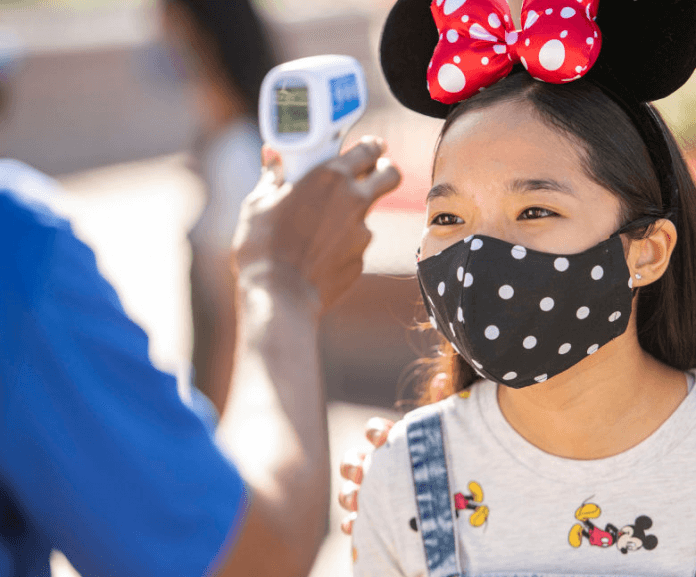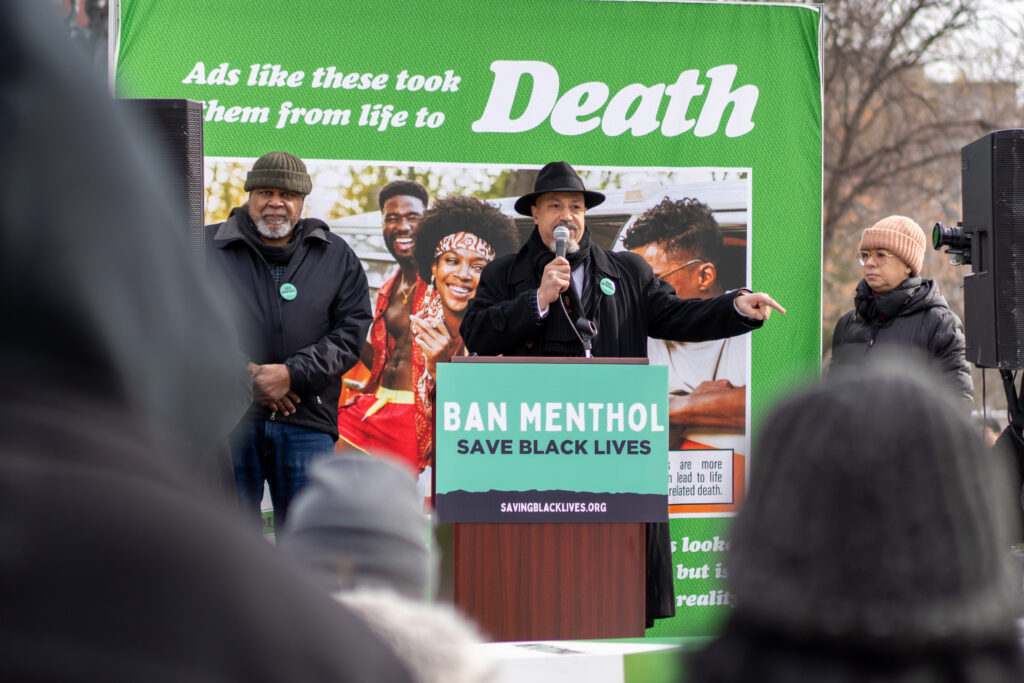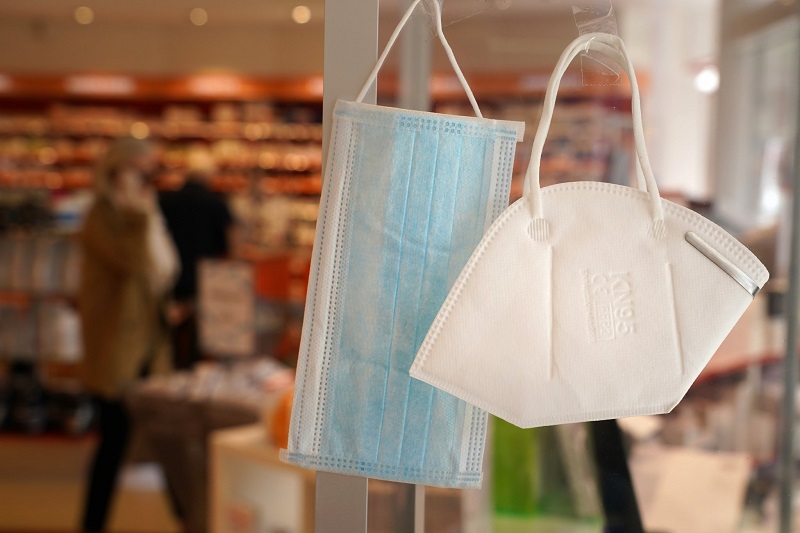
Florida’s world-renowned amusement parks and casinos have reopened during the coronavirus pandemic – most recently, Walt Disney World – but the state’s summer fun now comes with standing in line to get checked for fever during the COVID-19 pandemic.
Temperature checks are one of the safety protocols required for admission, and they involve a worker using a handheld device to read a patron’s body temperature. Those who have an elevated temperature can’t get in.
Fever checks may flag some visitors who are ill, but for any number of reasons, the American Civil Liberties Union warns that the practice is fraught with shortcomings and may represent more marketing than public-health policy.
“In many cases, it amounts to little more than public-health theater,” said policy analyst Jay Stanley, author of an ACLU report citing unresolved questions about the accuracy of temperature-checking devices and privacy concerns.
The report was issued in May. In an interview with the Florida Phoenix last week, Stanley still stands by his conclusions.
Temperature checks are visible signals that facilities care about making their destinations less hazardous, despite being unable to make them actually safe, he said.
“It poses a danger of creating a false sense of security,” Stanley said.
Amusement parks in Florida wouldn’t discuss their new protocols for safeguarding millions of visitors during the coronavirus pandemic, but they advise online that their guests must be, among other things, checked for fever.
Elsewhere, Hong Kong Disney shut down Monday for the second time this year due to coronavirus restrictions, according to the Associated Press, and Disneyland in California remains shuttered amid a new statewide lockdown announced Monday by Gov. Gavin Newsom (D).
Florida has continued to set records for new infections per day, even as people line up to get into amusement parks and other venues.
Walt Disney World near Orlando is straightforward about the hazard in this statement on its website:
“An inherent risk of exposure to COVID-19 exists in any public place where people are present. COVID-19 is an extremely contagious disease that can lead to severe illness and death. According to the Centers for Disease Control and Prevention, senior citizens and guests with underlying medical conditions are especially vulnerable.
“By visiting Walt Disney World Resort, you voluntarily assume all risks related to exposure to COVID-19.”
Temperature checks are required prior to admission at Busch Gardens in Tampa, Universal Orlando, SeaWorld Orlando, Walt Disney World in Orlando, and Seminole Gaming casinos around the state.
The CDC reports that a fever of 100.4 degrees Fahrenheit or higher may signal an infection with COVID-19 (normal temp is 98.6).
The amusement parks and casinos say a visitor whose temperature measures 100.4 or higher will be required to step aside to undergo further screening, mostly questions, and possibly will be checked a second time, in case an elevated temperature was temporary due to exertion or some other cause.
Visitors confirmed with a fever, from whatever cause, and their parties will be denied admission.
The CDC’s FAQs page for businesses refers to fever checks as “an optional strategy that employers may do” to screen their employees but it describes self-checks and screening questions as more effective ways to detect illness. It doesn’t recommend fever-checking customers.
“It’s not recommended … to temperature-check patrons,” Jason McDonald, a spokesman for the CDC’s COVID-19 response team, told the Phoenix. He said fever screenings may identify some cases of full-blown COVID-19 but will miss all customers who are infected and contagious without having fever or any other symptoms.
Accuracy of non-contact thermometers is questionable, too, McDonald said, agreeing with Stanley, who wrote in his ACLU report that various devices claim various, unproven levels of precision.
Devices being marketed during the pandemic as tools for no-contact fever screening include handheld infrared sensors, thermal cameras and drones marketed as being able to detect elevated body temperature from a significant distance even among people in groups.
McDonald and Stanley concurred in noting that an elevated body temperature may indicate conditions other than COVID-19, such as a non-contagious internal infection or even physical exertion just before being tested.
In his report, Stanley added that technologies that can remotely check a person’s body temperature also could be expanded to measure and record other vital signs, including heart rate, without the person’s consent, posing a violation of privacy.
Cato Institute Senior Fellow Walter Olson wrote in late May that businesses face potential liability over masking requirements and temperature checks of customers whether they do them or they don’t do them.
Some, he said, will feel legally safer by screening customers for fever in order to deflect claims in court that a customer contracted the disease on the premises because a proprietor did not sufficiently prevent it.
Olson’s article – “Temperature checks at businesses: Sued if you do, sued if you don’t” – says in part:
“The ACLU report makes much of various facts that hardly anyone disputes — temperature sensors are far from ideally accurate, some people return ‘hot’ results who do not have COVID-19, while others who do have it are not running a fever, and so forth. The argument for sensors has never been that they are perfect, but that by detecting at least some potentially contagious arrivals, they shift the odds and thus reduce overall spread of the disease in conjunction with de‐crowding, mask use, and other measures.”
McDonald and Stanley are aligned with Geoff Luebkemann, senior vice president of the Florida Restaurant and Lodging Association (FRLA), about the questionable value of temperature checks.
The association does not recommend temperature checks of patrons but endorses widespread use of face masks and supports proprietors who feel it necessary to deny service to someone believed to pose a health risk – as long as that person is not part of a protected class as defined by the Americans with Disabilities Act.
“We have been very cautious about this,” Luebkemann said in a interview with the Phoenix, in order to avoid offending customers, gathering inaccurate data, running afoul of the law, and forcing employees into confrontations with patrons who fail the screenings.
Instead, he said FRLA urges its members to practice “active managerial control” demonstrating responsible efforts based on CDC guidance and state executive orders. Those measures, many of them voluntary, feature the well-known basics of diligent distancing, frequent handwashing, preventing large gatherings, screening employees for indicators of illness, mostly self-reported indicators, and wearing masks to keep wearers who may be unknowingly infected from infecting others.
“The very core of this time is the tension between public health and operating realities,” Luebkemann said. Increased safety precautions cut into profits, he said, calling it a bitter pill that is necessary to swallow in order for businesses to stay open in Florida.
FRLA this week is rolling out a “Seal of Commitment” program in which its members can be publicly recognized by the association for adhering to best practices for protecting employees and patrons.




 Creative Commons Attribution
Creative Commons Attribution